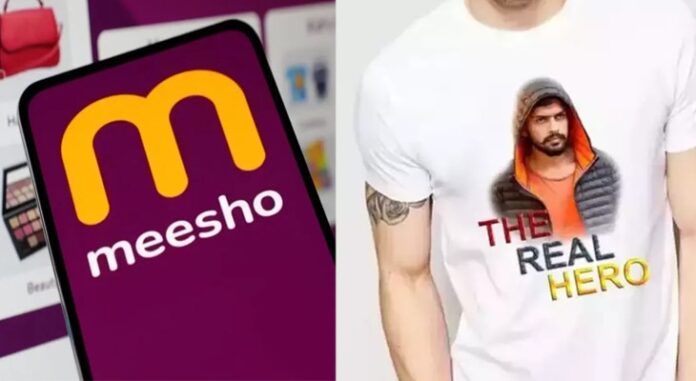Meesho Faces Backlash, Removes Lawrence Bishnoi T-Shirts From Platform
E-commerce platform Meesho recently found itself at the center of a social media storm over a controversial item listed on its site. T-shirts featuring Lawrence Bishnoi, a notorious gangster, were being sold on Meesho, sparking a wave of criticism online. Many users called out the company for allegedly promoting and ‘glorifying’ a criminal figure, accusing the platform of prioritizing profits over social responsibility.
The backlash grew rapidly on social media, with several users expressing their disapproval of the product listing. Meesho was criticized for allowing merchandise that seemed to celebrate a figure associated with crime, and some questioned the company’s content monitoring policies. The criticism highlighted a sensitive issue regarding the promotion of figures known for illegal activities, particularly on mainstream e-commerce platforms that serve a wide audience.

Social Media Outrage and Public Sentiment
Social media platforms like Twitter and Instagram saw an influx of posts from users condemning Meesho’s decision to list such items. Many expressed concern that the merchandise could influence young people by indirectly endorsing a life of crime. The incident reflects broader concerns about the impact of popular culture on public perception, particularly in cases where infamous figures are presented in a positive light.
One of the primary criticisms against Meesho was that, by allowing the sale of Lawrence Bishnoi-themed products, the platform could be seen as implicitly endorsing his actions. For some, the product listing was a means of profiting from criminal infamy, a move that many felt was morally questionable. Calls for greater accountability from e-commerce companies became louder, with demands for stricter policies on content and merchandise approval.
Meesho’s Response to the Controversy
Reacting to the intense backlash, Meesho promptly removed the Lawrence Bishnoi T-shirts from its platform. A spokesperson for Meesho confirmed that the decision was made in response to user feedback and widespread public disapproval. The company emphasized its commitment to respecting public sentiments and maintaining responsible content on its platform.
In a statement, Meesho reiterated that it strives to foster a responsible online marketplace, promising to take corrective actions to prevent similar incidents in the future. This response was aimed at reassuring users that the company is aware of its social responsibilities and intends to uphold ethical standards.
The Issue of Criminal Glorification in Pop Culture
The controversy surrounding Meesho’s product listing is not an isolated incident. In recent years, there has been growing concern over the glamorization of crime and criminals in popular culture. Movies, TV shows, and merchandise that portray criminals as anti-heroes or icons can create a romanticized image of crime, which can be misleading, especially for impressionable audiences.
In this particular case, the listing of Lawrence Bishnoi-themed merchandise can be seen as part of a larger trend where public fascination with criminal figures translates into commercial products. While such merchandise may appeal to certain buyers, it raises ethical concerns about the message it sends to society. For companies like Meesho, it underscores the need for a balanced approach that considers both market demands and societal impact.

E-Commerce and Content Monitoring
The incident highlights challenges faced by e-commerce platforms in content and product monitoring. With thousands of sellers and products, it becomes difficult for companies to manually vet each listing. Automated systems may not always catch controversial items, leading to situations like this one.
As user-generated content and third-party listings become more prevalent, companies are compelled to adopt stricter policies and invest in better content moderation tools. In Meesho’s case, the backlash serves as a reminder that e-commerce platforms are not merely commercial entities but also hold a social responsibility to ensure their listings align with ethical standards.
Looking Forward: Lessons for E-Commerce Platforms
This incident with Meesho can serve as a learning moment for the broader e-commerce industry. It illustrates the need for platforms to stay vigilant and responsive to public sentiment. Incorporating feedback mechanisms, improving content moderation, and clearly defining acceptable content policies can help avoid such controversies in the future.
E-commerce platforms must balance the commercial aspects of their business with their impact on society. As online marketplaces become more integral to consumers’ daily lives, the ethical responsibilities of these platforms will only grow. The swift backlash faced by Meesho reflects the public’s increasing awareness and demand for responsible corporate practices.
In conclusion, Meesho’s decision to remove Lawrence Bishnoi T-shirts after public backlash is a step towards addressing concerns over the ‘glorification’ of criminals in pop culture. While the company acted quickly to rectify the issue, the incident highlights the importance of ethical content moderation for e-commerce platforms in today’s digital age.

